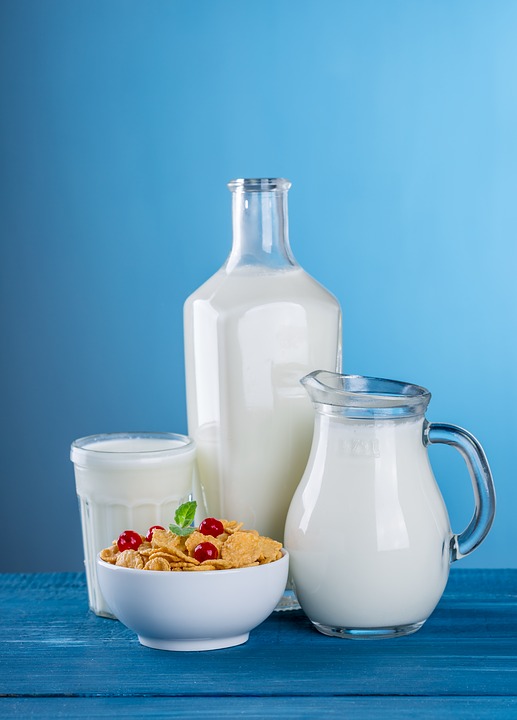By Lauren Scott, Arizona Farm Bureau Intern
Something has happened in the last 20 years, and fast-fading fad diets have become a societal norm. To get healthy or lose weight no one seems to think that eating healthy and exercising will do the trick. There’s a supplement for this, a nutritional shake for that, and a whole lot of people who don’t get results. The few who do get results are the most disciplined among us, and I commend them for that.

Supplements and shakes can’t, however, help your health if you are still eating unhealthy foods when no one is looking. Exercise plays a huge role in health too, and you can’t expect supplements to do all the work if you aren’t moving your body at least a little bit. The Mayo Clinic suggests that a well-rounded diet should eliminate the need for supplements except in special cases. These special cases are, but not limited to, people who are deficient in certain vitamins and minerals, pregnant women, and people over the age of 50.
Let me tell you a secret: Yes, these fad diets and programs may work for some, but you are paying a pretty penny for something you could do yourself. The experts tell us that discipline, a diet change, and weekly exercise are all you need to get healthy and get in shape. Don’t let anyone tell you differently.
Like I was saying, nutrition is key to getting healthy. Do you remember learning about the food pyramid back in grade school? It’s now known as ‘My Plate’, and I still live by that to this day. Lots of people have replaced significant parts of it with expensive and unnecessary products, but you don’t have to.
Dairy Works
Guess what one of the healthiest parts of My Plate is? Dairy.
“Milk, cheese, and yogurt are more than calcium, they contain high-quality protein along with eight other essential nutrients that your body needs every day. This unique nutrient combination can help you meet your nutritional needs in a deliciously easy way!” Said Terri Verason, Director of Nutrition Education for the Dairy Council of Arizona.
Although it’s true that dairy is not the only place to get calcium, protein, and certain vitamins, it is one of the better (and tastier) places you can obtain them. Don’t believe the hype when you hear that dairy ‘doesn’t even contain that many nutrients’ because all dairy products DO in fact contain many nutrients that the human body needs.
The Arizona Milk Producers website states: “Dairy foods are an excellent source of several essential nutrients that work together to help protect bones, including calcium, magnesium, phosphorus, potassium, protein and vitamin D.”
So let’s talk calcium for a minute. Do humans need calcium? Yes. Does dairy milk have calcium? Yes! It seems like a no-brainer, then, that we should drink a glass of milk, or eat yogurt and cheese on a regular basis. Still, people are substituting other ‘milks’ in place of dairy milk and dairy products. There’s just one little thing… These other ‘milks’ don’t always match up to the nutritional quality of cow’s milk.
See where I’m going here? People argue that there are other foods out there that are high in calcium too, and they are not wrong. Dairy is just the easiest way to absorb calcium into your system. Also, the fruits and veggies out there that contain calcium don’t contain as much as dairy. Eight ounces of fresh, cooked broccoli only contain 60 milligrams of calcium. Compare that to eight ounces of skim, low-fat milk, which contain 300 milligrams of calcium. Eight ounces of kale contain 180 milligrams, and eight ounces of boiled soybeans contain 175 milligrams of calcium, according to the National Osteoporosis Foundation.
Why do People say ‘No’?
Some people choose not to consume dairy products because they believe dairy will hinder their ability to lose weight. This study says that weight loss is not only something that has to be worked hard for but genetics, too, play a large role in how our body weight fluctuates. A glass of milk was not what made us gain two pounds, but the pizza, French fries, and alcohol many of us eat regularly may have contributed to our weight increase. There are many low-fat or fat-free dairy options for those who are trying to shed weight or keep their weight down. Exercise and keeping a healthy diet free of fast food and unnecessary sugars will help with weight maintenance, as well.
According to the National Dairy Council, along with not being the cause of your weight gain, consuming dairy products can possibly reduce your risk of Type 2 diabetes, Cardiovascular Disease, and is associated with lowering blood pressure.
There are some people who don’t consume dairy products, not because they don’t want to, but because they are lactose intolerant. WebMD says when someone’s body isn’t tolerant of lactose, (natural sugar found in dairy) their body can’t digest it properly. Symptoms of this issue include gas, bloating, and stomach aches. Your small intestine makes an enzyme called ‘lactase’. Lactase is what breaks down lactose as it moves through your intestines. In people with lactose intolerance, their bodies don’t produce enough lactase, which in turn means that the lactose their body is trying to process cannot be broken down. People with an intolerance for lactose most often substitute dairy products with products like almond or soy milk, and lactose-free yogurt and cheese.
Whether or not you choose to eat dairy products is up to you. Just keep in mind that everything can be good in moderation, and dairy goods aren’t evil, as people make them out to be. Now go enjoy a tall glass of milk, a serving of yogurt, and some cheese on your sandwich. If you want to know more about how dairy affects your health, take a look at some of these great resources:

